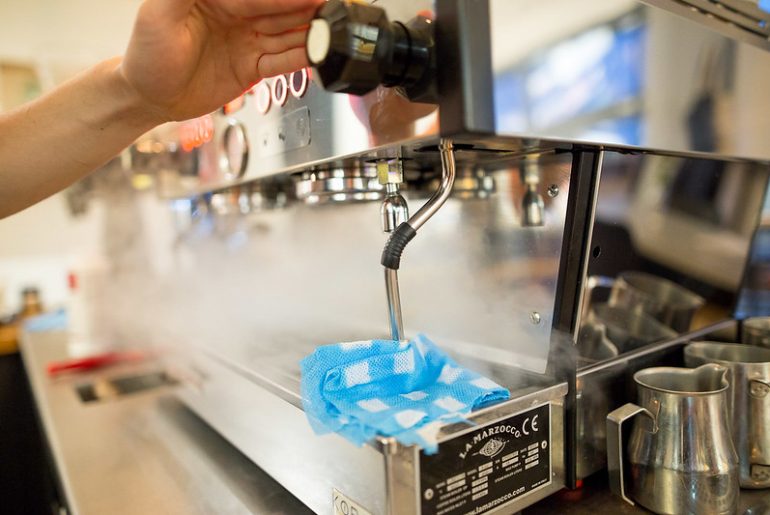The stimulating effects of coffee are quite obvious. A mug of good, black brew is…

Nearly 80% of adult Poles declare that they drink coffee. We are increasingly focusing on quality and good taste, and although we’re not like the Italians yet, we also like cafés for their good atmosphere, the opportunity to relax, the smell of freshly ground coffee and freshly baked pastries. So, why not turn your love of coffee into a business? Read on for our suggestions on how to find the right equipment for your café.
We look for quality in every product we eat or serve to our customers. Why else should it be with coffee? Espresso specialty is a way to convince your customers.
Restaurants and cafés should not only provide products of exquisite quality, serve delicious meals and…
This may come as a surprise, but it is a grinder, not an espresso machine that is the most important appliance in a coffee shop. The quality of each espresso or drip coffee served by you depends on how good and quickly you can grind. What sets a good grinder apart from a poor one?
Time and again, an underextracted coffee is served at a speciality coffee shop. A bag from a well-known roastery, the EK43 on the bar counter and a barista making a pledge: the sweetness of wild strawberries and a cocoa aftertaste. And in the cup: emptiness and an aroma hard to define. A boring, generic, slightly sour flavour devoid of life. Speciality coffee is in many ways a complex product; it is, in fact, complicated almost to the point of absurdity. One mistake at any stage of the journey can make you bid farewell to all those fancy sensory notes from Instagram.
Depending on how the properties of water at your premises differ from the ‘ideal’ ones, you will need to use more and more effective water filtration methods. Below, we describe them from the simplest to the most complex ones, which also have the most to offer.
An espresso cup is over 90% water, whereas a pour-over – over 98%. It is therefore worthwhile to understand how important water is for bringing out the optimal flavour of coffee, keeping your machine in good condition and reducing the risk of a breakdown. In this article, we explain water properties and the influence of water on coffee extraction. In the next part, we will focus on water filtration methods used in business.
Good coffee means not only a variety of flavours in the cup but also a variety of ways of bringing them out. There are many brewing methods; however, in most situations where we quickly need a lot of coffee, we are going to need a coffee maker. Which by no means has to be an espresso machine.
You don’t have to be a coffee lover or work for several years in the industry to come across the term: ‘speciality coffee’. What does it mean? And are speciality coffees really so exceptional, do they deserve so much attention from both the consumer and the business owner?
You run a coffee shop and the less waste philosophy is more than just a passing fad to you? Try to implement best practices at your premises; not only will they help the planet, but also they will attract many eco-friendly customers to your establishment! How to start doing business in harmony with nature, produce less excessive plastic waste and create a place ‘with purpose’? Read on to find out.